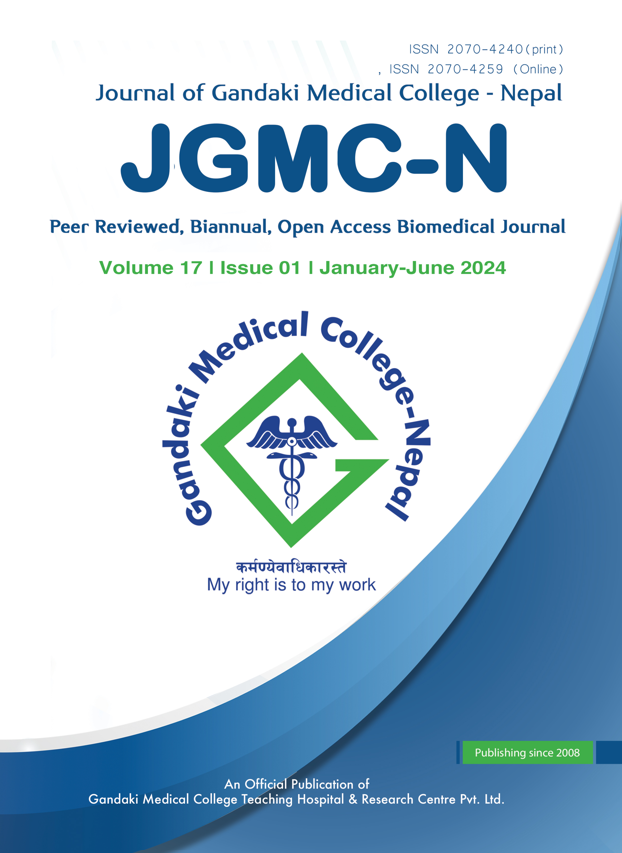Sleep quality and its association with perceived stress and junk food consumption among undergraduate medical students in Pokhara
DOI:
https://doi.org/10.3126/jgmc-n.v17i2.68281Keywords:
Junk food, Medical College, perceived stress, sleep quality, studentsAbstract
Introduction: Poor sleep quality has proven to impact students’ academic performance, interpersonal skills, and learning capacity and health. The objective of this study was to assess the quality of sleep and its association with perceived stress and junk food consumption among MBBS students studying at a Medical College, Pokhara.
Methods: A cross sectional study was conducted among 240 MBBS students studying at Gandaki Medical College using a self-administered questionnaire from November to December, 2023. The Pittsburgh Sleep Quality Index (PSQI) was used to measure sleep quality which includes seven sleep items, with higher scores indicating lower quality and a cumulative score of less than five indicating good sleep quality. The study used both descriptive and inferential statistics. Multivariate logistic regression was computed to examine the association of perceived stress and junk food consumption with sleep quality at the 5% level of significance.
Results: Out of total 240 respondents, 68.3% had poor sleep quality, 64.2% slept for six or less than six hours in the past one month. After adjusting with socio-demographic characteristics, students who reported that they consumed junk food more than three times in last week were 3.68 (AOR 3.68, CI 95%, 1.34-10.09) times more likely to have poor sleep quality as compared to those who consumed two or less times a week. Students who perceived moderate level stress had 2.49 (AOR 2.491, CI 95%, 1.19-5.23) times and who perceived high level of stress had 20.13 (AOR 20.13, CI 95%, 4.66-86.98) times likelihood of having poor sleep quality as compared to who perceived mild level of stress.
Conclusions: The study revealed poor sleep quality; and sleep quality was significantly influenced by junk food intake and stress levels among undergraduate medical students.
Downloads
Downloads
Published
How to Cite
Issue
Section
License
Copyright (c) 2024 The Author(s)

This work is licensed under a Creative Commons Attribution-NonCommercial 4.0 International License.
This license allows reusers to distribute, remix, adapt, and build upon the material in any medium or format for noncommercial purposes only, and only so long as attribution is given to the creator.

